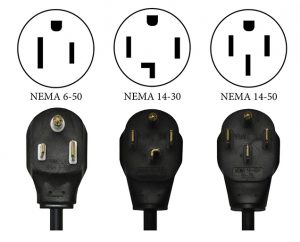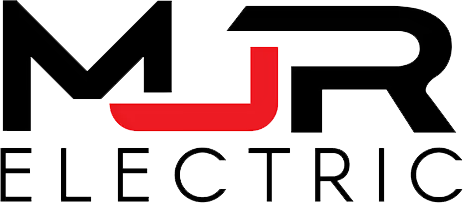To all you electric vehicle enthusiasts in Vancouver we wanted to create an article with the feedback we have received from our clients. Many of you may have, or have thought about purchasing an Electric Vehicle, and need to consider how you’re going to provide a level 2 charging station for your new or prospective vehicle. Below we provide you with the top questions and answers.
This article is dedicated to residential detached family dwellings. Single detached homes under one service from BC Hydro would fall into this category. Some townhouses would also be in this category that share a service from Hydro. A commercial EV charging station blog for apartment buildings and large service townhouses- (centrally distributed power room supplying all units) will be covered in a separate article.
Top 3 Questions for residential EV charging stations.
#1 How much faster is a Level 2 charging station than a Level 1 charger?
.. and can I get away with Level 1 charging?
It depends on your specific situation whether it’s practical or not. If you have a short daily commute and don’t require a quick turnaround charge when your vehicle’s battery is drained below 50%, or have consistent access to a workplace EV station, you may be able to get by using 120V (Level 1) charging just fine.
It’s important to note that Level 1 charging will be about 1200W of peak charge speed. If you’ve got a bigger battery like a Tesla Model X, you could be looking at a 3 day recovery charge time with Level 1 charging speed only!

For many that’s not practical, and having access to a 240V Level 2 charging at home makes more sense. The speed of your Level 2 charge depends on the assessment done by the electrician of your electrical panels’ capacity, and the demand calculation associated with and without an EV station. Depending on the assessment, he’ll assign a breaker size for your EV circuit and run the properly sized cables from the panel to your station.
Many of the wall chargers and the NEMA 30A receptacle can be programmed to limit their output as low as 24A on a 30A breaker some lower as well. Using a 30A breaker you get 5500W of charge speed. That’s 4 times as fast as Level 1 charging. Using a 40A breaker (for Tesla Model 3’s max charge speed), you get closer to 7500W, a 50A breaker 9600W. For anything at or greater than a 60A breaker, you require a separate disconnect providing additional protective means.
A 12000W + charge speed may not always be necessary (or possible depending on your panel or vehicle capacity), for all EV owners. In any Level 2 EV charging installation, charging multiple times quicker turns your charging time from a matter or days, to a matter of hours, and allows the owner more flexibility in their charging strategy for their commutes.
#2 Does BC Hydro offer incentives for the installation of a Level 2 station?
How much would I get back in a rebate? What will be my total cost?
For residential homes, BC Hydro offers a 50% rebate up to a maximum of $350 for eligible costs associated with single residential EV wall charger installations. For a complete list of criteria for eligible rebates, click here.
That means an eligible wall charger has to be purchased by a consumer, in addition to having the associated electrical work performed by a qualified electrician with proper permitting and demand calculation. A NEMA 30A or NEMA 50A receptacle (“non networked”) installation is NOT ELIGIBLE for the BC Hydro rebate. The wall charger must be networked in addition to other criteria.

For example, an eligible wall charger may cost around $700. The quote of an electrician to install the wall charger 10’ away from your panel using a 40A breaker may be around $850 including labour, materials and permitting cost. Add taxes to both items and your total cost is $1736. As your total costs exceed $700- you’re eligible for the maximum $350 rebate. Click here for a list of eligible chargers for the BC Hydro rebate.
Alternatively, an electrician can install a NEMA 30A or 50A receptacle for a similar charge speed for a lower overall cost to you (about $950 after taxes), but you don’t get the benefits of having your vehicle network connected.
#3 What do I need to get started with my electrical assessment?
An electrician should give you a comprehensive questionnaire before quoting or performing an installation of a Level 2 charging station. These answers to these questions will determine what your residence’s demand calculation currently sits at with respect to the CEC, and what charge speed is possible with an additional EV circuit.
The best starting spot is to take a look at your electrical panel, and take a few pictures for the electrician to look through. One of the more important photos, is be the size of your service, usually indicated by the number etched into the handle of the main breaker. This breaker is usually labeled, 100, 125, or 200. A close up photo with this number visible should be part of the information a home-owner provides to an electrician doing an assessment. After determining this, you should also know
- approximate square footage of your residence
- gas or electric supplied heat
- gas or electric range, and how many
- number of dryers
- any breakers that have a number greater than 15 on them, you should know what these provide power for and communicate these electrical demands to your electrician.
- If you have or are able to take photos of a nameplate (for example on an AC UNIT) they help determining an accurate demand calculation. Providing pictures of the electrical panel and associated labeling also allows your electrician to confirm what demands your panel has.
- Taking pictures of the space where you want the Level 2 charging station installed as well as the associated distance from panel- stations will help the electrician visualize how they will run the cables going to your station, and will confirm that that the plan of action is to the homeowners preference.
Click here for a free EV Assessment
At the end of the day, each homeowner and home presents a unique set of circumstances for EV charging possibilities, and our job is to help you realize what exactly is possible in your situation, and for how much! Hope this helps you have a better understanding of how charging works. If you are interested in having an electric vehicle charging station installed please inquire today and send us an email to sales@mjrelectric.ca.
